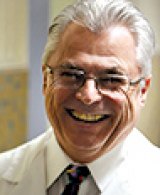
James Lehman DC, Associate Professor of Clinical Sciences and Director of Health Sciences Postgraduate Education at the University of Bridgeport College of Chiropractic stated in a recent article published in the December 2019 issue of Dynamic Chiropractic that its time to embrace the term "chiropractic medicine" and that its "no longer acceptable to remain separate and distinct".
CLICK HERE for more on this hate group
Lehman regularly calls for the expansion of chiropractic scope of practice to infringe on the practice medicine under the guise of helping more people.
Calling it an "ethical responsibility" to use the term and to create a "national practice act that licenses the practice of chiropractic medicine" Lehman says that chiropractors who "cringe upon reading the term chiropractic medicine" need to "get over it".
In his article, Lehman justifies the use of the term through a bizarre patchwork of tired old rationales for scope expansion involving the American Chiropractic Association's Medicare Scope Expansion and Drug Bill, the opioid crisis, chronic pain, student loan debt and several other disjointed complaints that amount to a revelation of low self esteem at being a chiropractor.
Lehman asserts a simple minded "solution" to chiropractic's acceptance as a "valid and valuable health care profession" by chiropractic schools, associations and providers changing chiropractic terminology, education and training to call it "chiropractic medicine".
Using two states that call chiropractic "chiropractic medicine" (Kansas & Florida) and the National University of Health Sciences Doctor of Chiropractic Medicine diploma as examples, Lehman calls use of the term chiropractic medicine "appropriate and reasonable".
And in an indictment of the entire chiropractic educational system Lehman claims:
"Chiropractic students graduate with significant debt, and inadequate business education and clinical training."
Lehman's solution?
Primary Care.
Yes, Lehman points out the crisis regarding a shortage of primary care providers and asserts chiropractors can fulfill these roles within community and rural health centers.
Despite the fact that primary care providers are the least paid but have the most responsibility in health care, Lehman thinks pretending to be primary care providers will save the chiropractic profession and ease the debt burden of chiropractic college graduates.
Lehman also offers his own definition of the oxymoron "chiropractic medicine" as follows:
"The evidence-based practice of differential diagnosis, patient-centered treatment, and prevention of pain and human disease as taught by CCE-approved chiropractic colleges/institutions/schools."
Besides National University, Keiser College of Chiropractic Medicine also uses the oxymoron "chiropractic medicine" in the name of their program. However, according to the U.S. Department of Education web site, the Council on Chiropractic Education is recognized as a specialized accrediting agency. "The scope of recognition of the CCE is the accreditation of programs leading to the Doctor of Chiropractic degree and single-purpose institutions offering the Doctor of Chiropractic program."
There is no mention of the CCE having the authority to accredit or recognize Chiropractic Medicine Programs.
Despite this, the CCE has ignored the US Department of Education in regards to Keiser and National University of Health Sciences despite complaints submitted to them by chiropractic trade groups including the International Federation of Chiropractors & Organizations (IFCO) and the Florida Chiropractic Society (FCS).
The IFCO recently issued a press release on the issue of "chiropractic medicine" terminology (click here for that story) and the FCS has previously pointed out that the degree doesn't even exist (Click here for that story)
